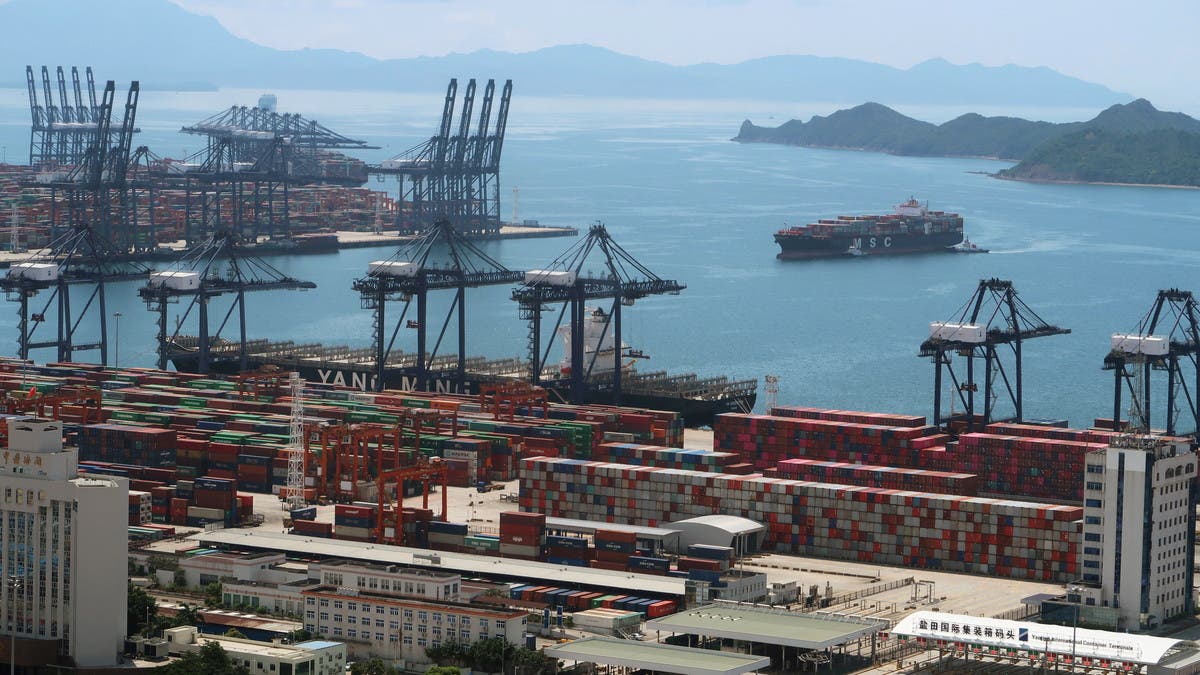US President Joe Biden’s warning of “consequences” for any aid China may give to Russia’s Ukraine war effort could force Chinese President Xi Jinping to choose between a longstanding lucrative trade relationship with the West and a growing strategic partnership with Moscow.
For the latest headlines, follow our Google News channel online or via the app.
Based on trade flows alone, Beijing has a lot at stake following Biden’s nearly two-hour video call with Xi on Friday, with the White House confirming that sanctions on China were an option.
Despite growing trade ties to Southeast Asia and an economy that is less dependent on trade over the past decade, China’s economic interests remain heavily skewed to Western democracies, trade data reviewed by Reuters showed.
Siding with political ally Russia would make little economic sense for China, according to analysts, as the United States and European Union still consume more than a third of China’s exports.
“On the pure economic question, if China were to have to make the choice – Russia versus everyone else – I mean, it’s a no-brainer for China because it’s so integrated with all of these Western economies,” said Chad Bown, a senior fellow at the Washington-based Peterson Institute for International Economics think tank who tracks China trade closely.
China’s ambassador to the United States, Qin Gang, on Sunday emphasized China’s close relationship with Russia.
“China has normal trade, economic, financial, energy cooperations with Russia,” Qin told the CBS program “Face the Nation” when asked if Beijing would provide financial support to Moscow. “These are normal business between two sovereign countries, based on international laws, including WTO (World Trade Organization) rules.”
Targeting Beijing with the type of broad economic sanctions that have been imposed on Russia would have potentially serious consequences for the United States and globally, given that China is the world’s second-largest economy and the largest exporter. As China’s economy has ballooned to $16 trillion in the past 20 years, its dependence on trade with other countries for its economic well-being has diminished.
As Chinese citizens become wealthier, domestic consumption and services are playing a bigger share in China’s economy.
However, China is still more dependent on trade, at about 35 percent of GDP, than the United States at 23 percent or Japan at 31 percent.
The wealthy G7 countries that form the heart of an anti-Russia alliance following last month’s invasion of Ukraine still consume more than a third of China’s exports. That is a drop from almost half of China’s exports nearly two decades ago, but a relatively steady share since 2014, when Russia annexed Ukraine’s Crimea region.
The share of China’s exports to Association of Southeast Asian Nations (ASEAN) countries, with which China recently has forged new trade agreements, has doubled to about 15 percent, eclipsing Japan in importance. But China’s January-February 2022 trade data showed that exports to the European Union grew the most at 24 percent.
Oil for cellphones
Russia’s overall trade with China has grown since the West first imposed sanctions on Moscow in response to its annexation of Crimea.
But China’s exports to Russia have remained between one percent and two percent for the past 20 years.
Russian imports from China track those of many other countries, with electronics and consumer goods including cellphones, computers, apparel, toys and footwear topping the list.
China exported 10 times as many cellphones, by value, to the United States alone, at $32.4 billion in 2020, based on UN Comtrade data.
China’s imports from Russia are dominated by oil. At $27 billion in 2020, crude oil and other petroleum dwarfs all other imports from Russia, mainly commodities including copper, softwood lumber, liquefied natural gas, coal, metals and ores.
Although the United States has banned Russian energy imports, Western sanctions have not specifically targeted Russia’s oil and gas exports. But the US-led sanctions on Russian banks that prohibit dollar transactions have hampered China’s ability to provide trade finance for oil Russian oil cargoes.
Read more:
Saudi Arabia FM meets Chinese counterpart to discuss regional security
Opinion: China’s interests have moved from Africa to other regions ripe for trade
GCC leaders in Beijing to meet with Chinese officials

 World3 years ago
World3 years ago
 World3 years ago
World3 years ago
 Business1 year ago
Business1 year ago
 Entertainment7 years ago
Entertainment7 years ago
 World7 years ago
World7 years ago
 Entertainment7 years ago
Entertainment7 years ago






